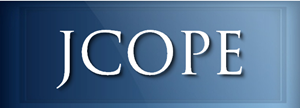February 11, 2020 •
New Jersey Introduces Local Lobbying Disclosure Bill
On February 3, a bill was introduced in the New Jersey Assembly establishing the Local Governmental Process Activities Disclosure Act. Assembly Bill 2432 extends the same disclosure, reporting, and other requirements that govern the activities of governmental affairs agents to […]
On February 3, a bill was introduced in the New Jersey Assembly establishing the Local Governmental Process Activities Disclosure Act.
Assembly Bill 2432 extends the same disclosure, reporting, and other requirements that govern the activities of governmental affairs agents to their activities with respect to all local government levels.
If passed, this act takes effect immediately.
December 9, 2019 •
Illinois Governor J.B. Pritzker Signs Lobbyist Disclosure Bill
Gov. J.B. Pritzker signed a bill on December 5 requiring increased disclosure from lobbyists. Senate Bill 1639 provides that lobbyist registration must include each unit of local government for which the registrant is or expects to be required to register […]
Gov. J.B. Pritzker signed a bill on December 5 requiring increased disclosure from lobbyists.
Senate Bill 1639 provides that lobbyist registration must include each unit of local government for which the registrant is or expects to be required to register to lobby, as well as each elected or appointed public office to be held by the registrant at any time during the registration period.
The bill also requires the secretary of state to create a combined online database for lobbyist disclosures, campaign contributions, and public officials’ annual statements of economic interest.
Senate Bill 1639 became effective when signed.
The Lobbyist Division of the Massachusetts Secretary of the Commonwealth’s Office announced they are transitioning to a new disclosure reporting system on June 19. Exclusive, hour-long introduction and training seminars on the new system will be held from June 19 […]
The Lobbyist Division of the Massachusetts Secretary of the Commonwealth’s Office announced they are transitioning to a new disclosure reporting system on June 19.
Exclusive, hour-long introduction and training seminars on the new system will be held from June 19 to June 21.
Appointment requests can be sent to lob@sec.state.ma.us.
Firms should offer three preferable times between 10 a.m. and 4 p.m. on any of the three available days. Walk-ins for the seminar will not be accepted.
The Lobbyist Division will be offering additional training for all registered entities, lobbyists, and clients from June 24 to July 12.
Organizations that are unable to attend the introduction seminars can apply for these training sessions instead.
January 15, 2019 •
Portland Mayor Proposes Voting, Lobbyist Disclosure Rules
Mayor Ethan Strimling announced he will propose changes to city elections, seeking public funding for local campaigns and new lobbyist disclosure rules. Strimling’s new initiatives will demand elected officials disclose meetings with lobbyists and other influencers. The initiatives will also […]
 Mayor Ethan Strimling announced he will propose changes to city elections, seeking public funding for local campaigns and new lobbyist disclosure rules.
Mayor Ethan Strimling announced he will propose changes to city elections, seeking public funding for local campaigns and new lobbyist disclosure rules.
Strimling’s new initiatives will demand elected officials disclose meetings with lobbyists and other influencers.
The initiatives will also reiterate calls to allow noncitizens living in the city legally the right to vote in local elections, as well as urge the city to implement ranked-choice voting in City Council and school board races.
Strimling said he plans to work with the City Council and other stakeholders to develop the details of his proposals over the year.
August 22, 2016 •
New York JCOPE Investigation Could Impact Lobbying Disclosure
The Joint Commission on Public Ethics (JCOPE) is investigating a series of donations to Manhattan nonprofit Pledge 2 Protect. Under current law, groups engaged in lobbying activities exceeding $50,000 annually must disclose donors of $5,000 or more. The investigation arose […]
 The Joint Commission on Public Ethics (JCOPE) is investigating a series of donations to Manhattan nonprofit Pledge 2 Protect.
The Joint Commission on Public Ethics (JCOPE) is investigating a series of donations to Manhattan nonprofit Pledge 2 Protect.
Under current law, groups engaged in lobbying activities exceeding $50,000 annually must disclose donors of $5,000 or more. The investigation arose from a series of donations nearing $700,000 from unknown sources to a newly founded law firm, Marquart & Small. These donations were ultimately given to Pledge 2 Protect, with only Marquart & Small disclosed as Pledge 2 Protect’s donor.
Depending on the outcome of the case, Marquart & Small may be required to name their undisclosed third-party donors, and similarly situated groups would have to do the same moving forward.
On May 30, legislation to amend lobbying disclosure laws was introduced in the House of Commons. If passed, Bill C-278 would require lobbyists to disclose whether they are funded by a foreign national, a non-resident corporation, or a non-resident organization […]
 On May 30, legislation to amend lobbying disclosure laws was introduced in the House of Commons.
On May 30, legislation to amend lobbying disclosure laws was introduced in the House of Commons.
If passed, Bill C-278 would require lobbyists to disclose whether they are funded by a foreign national, a non-resident corporation, or a non-resident organization and whether grassroots communications will be used in their lobbying efforts.
May 20, 2016 •
Delaware Hit with Wave of Lobbyist and Donor Bills
On May 17, three separate bills regarding lobbyists and political donors were introduced in the General Assembly. If all three bills pass, political committees would be required to report a contributor’s occupation and employment information (Senate Bill 224), lobbyists would […]
 On May 17, three separate bills regarding lobbyists and political donors were introduced in the General Assembly.
On May 17, three separate bills regarding lobbyists and political donors were introduced in the General Assembly.
If all three bills pass, political committees would be required to report a contributor’s occupation and employment information (Senate Bill 224), lobbyists would be required to disclose the source and amount of received payments (Senate Bill 225), and lobbyists would be required to pay a registration fee or face certain penalties (House Bill 385).
February 10, 2012 •
DISCLOSE Act Returns for 2012
Also Affects Lobbyist Reporting
 U.S. Congressman Chris Van Hollen has introduced a campaign finance bill in the House called DISCLOSE 2012 Act.
U.S. Congressman Chris Van Hollen has introduced a campaign finance bill in the House called DISCLOSE 2012 Act.
Like the similarly entitled bill introduced and defeated in 2010, House Resolution 4010, the Disclosure of Information on Spending on Campaigns Leads to Open and Secure Elections Act of 2012, aims to increase the reporting requirements of political expenditures and contributions by corporations and other outside groups.
Corporations, unions, and other groups, will be required to report certain campaign-related activity to the Federal Election Commission (FEC), to disclose their campaign-related expenditures to their shareholders and members, and to make their political spending available to the public, through a hyper-link to the FEC, on their websites.
In his press release, Congressman Van Hollen states, “I urge my colleagues on both sides of the aisle to support this legislation – if you have nothing to hide, you have nothing to fear from the DISCLOSE 2012 Act.”
Additionally, the bill also requires lobbyists to disclose their political expenditures in their lobbying disclosure reports in conjunction with the report of their lobbying activities.
March 23, 2011 •
Providence Creates Lobbying Registration Law
Registration and Reporting Required
 Providence has passed a new lobbyist registration law. The Lobbyist Disclosure Ordinance requires registration before the first lobbying activity. Online registration will be an available option. Each lobbyist will receive an ID badge with his or her name, photograph, identifying information, and the name of each client being represented.
Providence has passed a new lobbyist registration law. The Lobbyist Disclosure Ordinance requires registration before the first lobbying activity. Online registration will be an available option. Each lobbyist will receive an ID badge with his or her name, photograph, identifying information, and the name of each client being represented.
There is a $150 filing fee for lobbyists employed by entities with budgets over $250,000. Otherwise, the filing fee is $25. Lobbyists and employers will be required to file quarterly reports, and a final report in January detailing all expenses and compensation for the previous calendar year.
Penalties include fines up to $250 a day, up to a maximum of $25,000 per calendar year, and a prohibition of lobbying the city until the following year or until compliance is established. The ordinance takes effect May 16.
Photo of the Providence City Hall by Anatoli Lvov.
January 3, 2011 •
Proposed Bill for Disclosure of Lobbying of Local Indiana Governments
State Senator Wants Transparency
 State senator Jim Arnold announced he will introduce legislation to regulate lobbying disclosure rules for all levels of local government in Indiana. In his proposed bill, spending by vendors bidding for contracts of $100,000 or more with a governmental body would trigger mandatory disclosure.
State senator Jim Arnold announced he will introduce legislation to regulate lobbying disclosure rules for all levels of local government in Indiana. In his proposed bill, spending by vendors bidding for contracts of $100,000 or more with a governmental body would trigger mandatory disclosure.
Local governmental officials, including county commissioners and city council members, would be required to report whenever a lobbyist spent money on them over a threshold limit.
The law is not intended to supersede local ordinances but would still establish and necessitate minimum requirements of disclosure.
Photo of State senator Jim Arnold courtesy of the Indiana Senate Web site.
State and Federal Communications, Inc. provides research and consulting services for government relations professionals on lobbying laws, procurement lobbying laws, political contribution laws in the United States and Canada. Learn more by visiting stateandfed.com.


